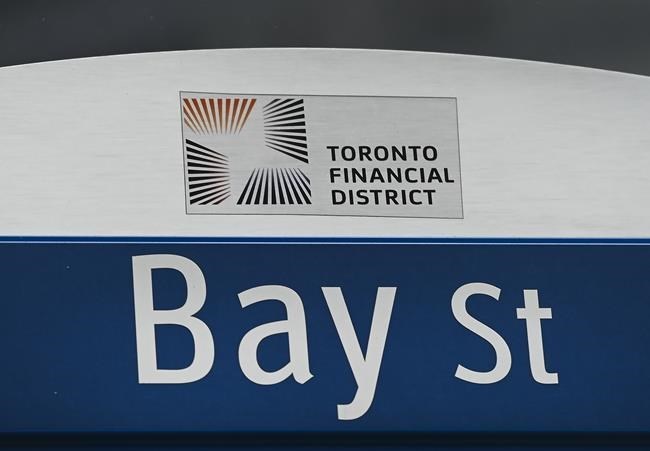TORONTO — Strength in energy stocks helped lead the way higher for Canada's main stock index Friday, while markets in the U.S. were muted.
The S&P/TSX composite index closed up 122.70 points at 20,175.77.
In New York, the Dow Jones industrial average was up 1.81 points at 34,947.28. The S&P 500 index was up 5.78 points at 4,514.02, while the Nasdaq composite was up 11.81 points at 14,125.48.
It was the third straight week of gains for markets, with November shaping up to be much more positive than recent months. Economic data in Canada and the U.S. have continued to soften, indicating that higher interest rates are working and solidifying investors’ hopes that no more hikes will be needed.
“As economic data weakens, to a point, it's good for markets, because it kind of takes central banks off the table as far as raising rates, of course, but also that we might get some relief from, actually, rate cuts as we go into 2024,” said Michael Greenberg, senior vice-president and portfolio manager at Franklin Templeton Investment Solutions.
There was more of a belief among investors even just a month or so ago that further rate hikes, or at least higher rates for longer, would be necessary, he said.
“Then we saw some of the data turn and obviously markets rebounded quite quickly,” he said. “Now we're at a point where that sort of soft landing is starting to get priced in.”
In the U.S, expectations for a soft landing have increased since earlier in the year, said Greenberg, though it’s still not a guarantee.
In Canada, however, there’s a little more to worry about, he added.
"Just given, you know, our backdrop of higher debt levels, or variable-rate loans ... we might have a little bit more interest rate sensitivity to our market,” said Greenberg. That makes skirting a recession more of a likelihood south of the border, he said.
But so far, investors are pricing in around three interest rate cuts over the next 12 months in both Canada and the U.S., said Greenberg, though he thinks the probability in Canada is higher for the same reason.
Over the short term, if signs continue to point to a gradual weakening of the economy, investors will continue to take that as good news, he said. But as the months wear on, the narrative could change.
“I think as we move into next year ... if we continue to see economic data weaken because of the lagged effect of rate hikes, you know, that might pose a bit more of a challenge for risky assets,” he said, causing some more volatility over the next couple of quarters.
The Canadian dollar traded for 72.88 cents US compared with 72.73 cents US on Thursday.
The January crude contract was up US$2.95 at US$76.04 per barrel and the December natural gas contract was down 10 cents at US$2.96 per mmBTU.
The December gold contract was down US$2.60 at US$1,984.70 an ounce and the December copper contract was up four cents at US$3.74 a pound.
This report by The Canadian Press was first published Nov. 17, 2023.
Companies in this story: (TSX:GSPTSE, TSX:CADUSD)
Rosa Saba, The Canadian Press



